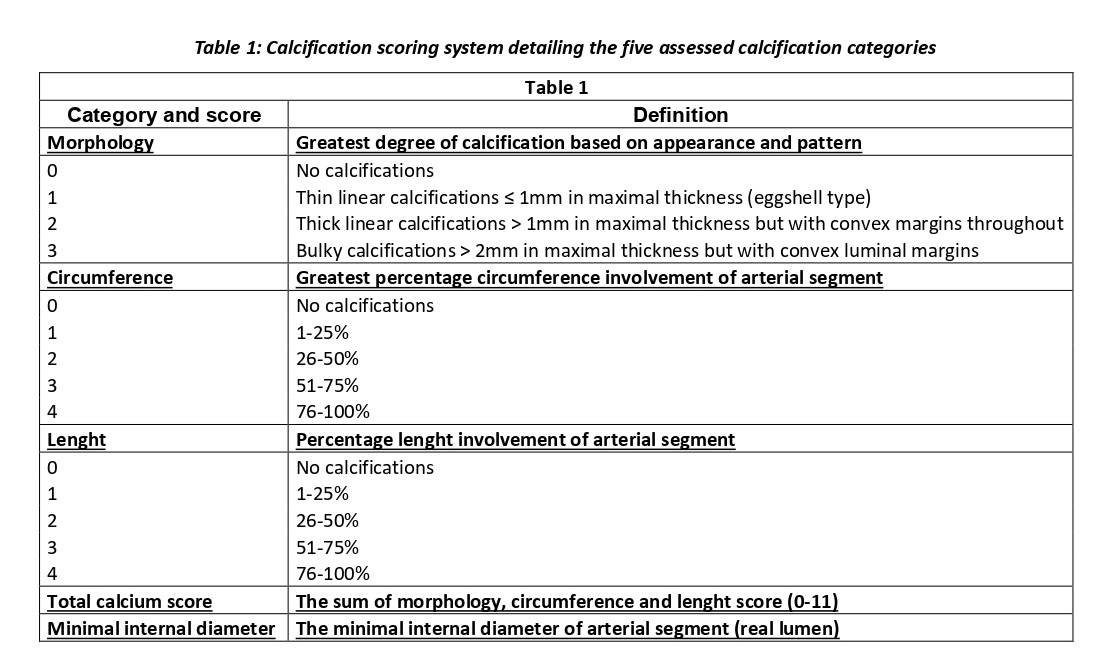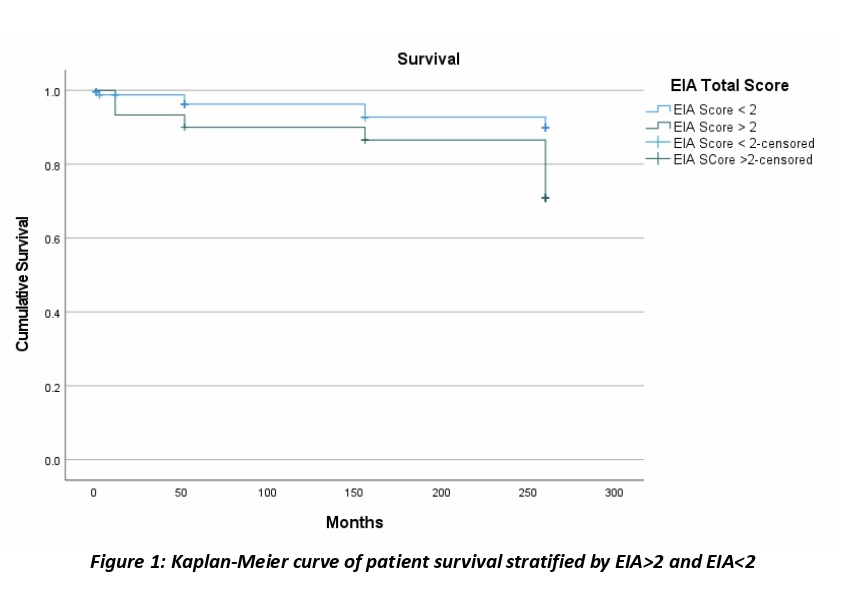CT Based Iliac Vessel Calcification Scoring: Long Term Patient and Allograft Outcomes
L. Clementoni, M. R. Akhtar, C. Seet, M. Saoud, R. Shah, I. H. Mohamed, M. A. Khurram
The Royal London Hospital - Barts Health NHS Trust, London, United Kingdom
Meeting: 2022 American Transplant Congress
Abstract number: 217
Keywords: Graft survival, Kidney transplantation, Metabolic disease, Vascular disease
Topic: Clinical Science » Kidney » 35 - Kidney: Cardiovascular and Metabolic Complications
Session Information
Session Name: Kidney: Cardiovascular and Metabolic Complications II
Session Type: Rapid Fire Oral Abstract
Date: Monday, June 6, 2022
Session Time: 3:30pm-5:00pm
 Presentation Time: 3:40pm-3:50pm
Presentation Time: 3:40pm-3:50pm
Location: Hynes Veterans Auditorium
*Purpose: Coronary calcification is a known indicator of poor cardiac outcomes. Similarly, iliac and distal vascular calcification has been shown to be an adverse outcome parameter for patients with peripheral vascular disease. There is paucity of evidence around the role of arterial calcification on renal transplant patients. We aimed to assess the impact of iliac calcification on short and long term outcomes of grafts and transplant patients.
*Methods: All patients undergoing CT scan within 3 year from the date of transplant who had a CT scan for any reason were included between January 2012 to December 2016 from a single center. Patients with dual and multivisceral transplant were excluded. This cohort is highly selected group with long-standing diabetes, long dialysis vintage, medical and surgical complexities requiring a CT scan. Recipient parameters were collected retrospectively. Based on morphology, circumference, length of calcification and internal diameters of the common iliac (CIA) and external iliac arteries (EIA), CT scan based scores were calculated by two senior radiologists independently. (Table1)
*Results: 272 patients were included: M 154, 19% with heart disease, 25% diabetic, 71% hypertensive, 73% on haemodialysis, 8.4% pre-emptive, mean dialysis vintage 37.5 months [0 – 192]. In univariate analysis, CIA and EIA total score (cut-off >2, >3 and >4) have a strong association with MACE (major adverse cardiovascular events) (p= 0.025, p= 0.01, p=0.02 for CIA, p=0.039, p= 0.006 and p= 0.002 for EIA) and in multivariate analysis, when adjusted for cardiac disease and dialysis modalities (significant confounders on univariate analysis), EIA>3 (p= 0.032) and EIA>4 (p= 0.015) have also strong correlation with MACE. Patient survival was inferior when EIA score>2 (p=0.005). (Figure1)
*Conclusions: CT estimation of proximal calcification of the iliac vessels predicts higher incidence of cardiac complications and negatively influences the longer-term patient survival when calcification affects EIA. Caution needs to be exercised when dealing with patients with significant iliac calcification but should not be a barrier to transplantation.
To cite this abstract in AMA style:
Clementoni L, Akhtar MR, Seet C, Saoud M, Shah R, Mohamed IH, Khurram MA. CT Based Iliac Vessel Calcification Scoring: Long Term Patient and Allograft Outcomes [abstract]. Am J Transplant. 2022; 22 (suppl 3). https://atcmeetingabstracts.com/abstract/ct-based-iliac-vessel-calcification-scoring-long-term-patient-and-allograft-outcomes/. Accessed February 17, 2026.« Back to 2022 American Transplant Congress


